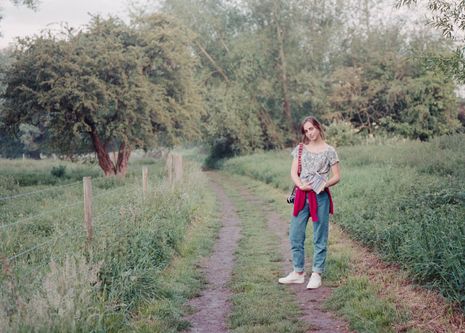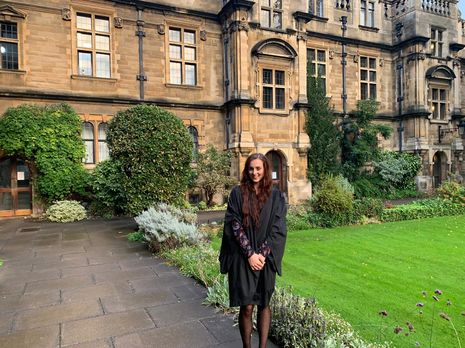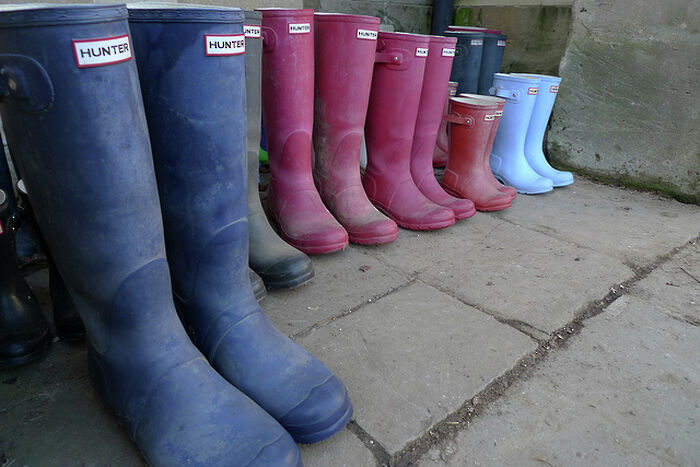How I got into Cambridge with two GCSEs
“I was a home-educated student with middling grades and dyslexia”

At the age of sixteen I saw the University of Cambridge the way I saw Hogwarts: a childish fantasy. So many potential Cambridge students sit, as I did, on the other side of the smokescreen unable to access higher education. These institutions are putting off promising applicants on the basis of intimidating reputations because they believe they do not fit a certain stereotype. However, as I found out, you don’t have to be academically flawless in order to get accepted into Oxbridge.
For years I daydreamed through maths, fidgeted and lost focus every 10 minutes and only ever accessed history through Jane Austen movie adaptations. I was a home-educated student with middling grades and dyslexia, and my struggles with reading, maths and science made conventional studying loathsome.
“Let’s get real; a student with a learning difficulty and two GCSEs gets into Cambridge?”
Had I fallen irretrievably into the traditional school system, I believe that my singular talent, creativity, would have been the first to fall. Next? Any meagre passion for learning. Yet, rather than drowning in GCSE exams in the double-digits, I remained home-educated up to sixth form and sat exams for just two. If I had gone to a “normal” school, I certainly would not be typing this now in a bougie café, a few blocks down from my home college, living what can only be described as that Cambridge experience.
I spent my years aged fifteen and sixteen volunteering at charities and museums, alongside pursuing non-exam-based art qualifications. As I practised my art, my confidence and desire to learn grew; I consumed maths, science, and literature, as well as creative subjects. I did not conquer the confines of a dyslexic brain but learnt to adapt my education to suit my needs.
What I experienced was a revolution in learning. The drudgery of worksheets and textbooks ended in a blinding flash of Crash Course and Khan Academy. As post-16 education drew near, I was toeing the line between safety and an ambition that steadily grew over the summer I turned sixteen.
Cut to September 2017: I found myself at the local college where I’d enrolled for a BTEC that I assumed would be more suited to my learning style. I walked into the college, on my first day attending formal education ever, and was disappointed. The subjects I’d just started discovering now seemed out of my reach, as if formal education had pushed them away. That same day, I unenrolled from the diploma, made some phone calls, and arrived at a sixth form college the next morning, ready to tackle A-levels in History, Politics, and Media Studies.
“I longed for candlelit dinners, billowing black gowns and champagne escapades atop college roofs”
Consistent low Bs defined my schooling experience in Year 12, but, by the summer term, the hours I had poured into my subjects began to pay off. Mark by mark, I crawled up to a low A and then, eventually, a consistent A-grade.
Oxbridge fantasies still haunted me. I longed for candlelit dinners, billowing black gowns and champagne escapades atop college roofs. Initially, though, I did not seriously consider Cambridge because of my previous academic record. Two GCSEs, an unimpressive Year 12 and a host of creative qualifications surely would not endear me to any academic institution.

Yet, slowly, quietly, in the back of my mind, my “learning revolution” had been morphing into a priceless fuel: ambition. I studied tirelessly to improve my grades from an A to an A*, worked three part-time jobs and volunteered at charities where I could.
The next few months consisted of a slew of unexpected emails, trepidatious interview preparation, and tongue-biting smiles, as my plan began to work. On results day 2019 I secured my offer from the University of Cambridge.
Let’s get real; a student with a learning difficulty and two GCSEs gets into Cambridge? Something doesn’t add up, and it’s not just because I never sat Maths SAT.
What I have discovered is that the reputation of the Oxbridge application process prevents scores of students with non-traditional backgrounds from applying, when they could actually get in. I didn’t need a multitude of 7s, 8s, 9s and A*s at GCSE to get a place to study at Cambridge. By bypassing the drudgery of GCSEs and concentrating on what I loved, I ended up with creative qualifications and enough work experience to rival an entrepreneurial 20-something. Most importantly, I was a contrast to the system.
We’ve all heard how employers value experience over high grades in education; what if the same applied to top-tier UK universities? Schools across the country enter into years of preparation for Oxbridge applications: essay writing, debating, interview skills. Such processes are not confined to the likes of Eton and Harrow, or even just the private sector, but sometimes high-performing state schools. Lifelong applicant preparation attempts to mould Russell-Group-wannabes into successful Oxbridge applicants, but in reality, the truth need not be so gruelling.
I’m here to dispel the myth that Oxbridge students were always destined to end up as such. In many cases, it’s the result of previously ‘average’ students whose ambition and individuality led them somewhere entirely unexpected. My Cambridge application experience encouraged me more than ever to embrace my originality. This is my message to you: don’t be afraid to accentuate your quirks because they are what makes you unique. Whether in your artwork, your social interactions or even your academic applications, embrace what makes you “you”.
 Comment / Plastic pubs: the problem with Cambridge alehouses 5 January 2026
Comment / Plastic pubs: the problem with Cambridge alehouses 5 January 2026 News / New movement ‘Cambridge is Chopped’ launched to fight against hate crime7 January 2026
News / New movement ‘Cambridge is Chopped’ launched to fight against hate crime7 January 2026 News / Uni-linked firms rank among Cambridgeshire’s largest7 January 2026
News / Uni-linked firms rank among Cambridgeshire’s largest7 January 2026 News / Cambridge businesses concerned infrastructure delays will hurt growth5 January 2026
News / Cambridge businesses concerned infrastructure delays will hurt growth5 January 2026 Features / Who gets to speak at the Cambridge Union?6 January 2026
Features / Who gets to speak at the Cambridge Union?6 January 2026










